PhD research into UU's history
Support staff became more and more influential over the years
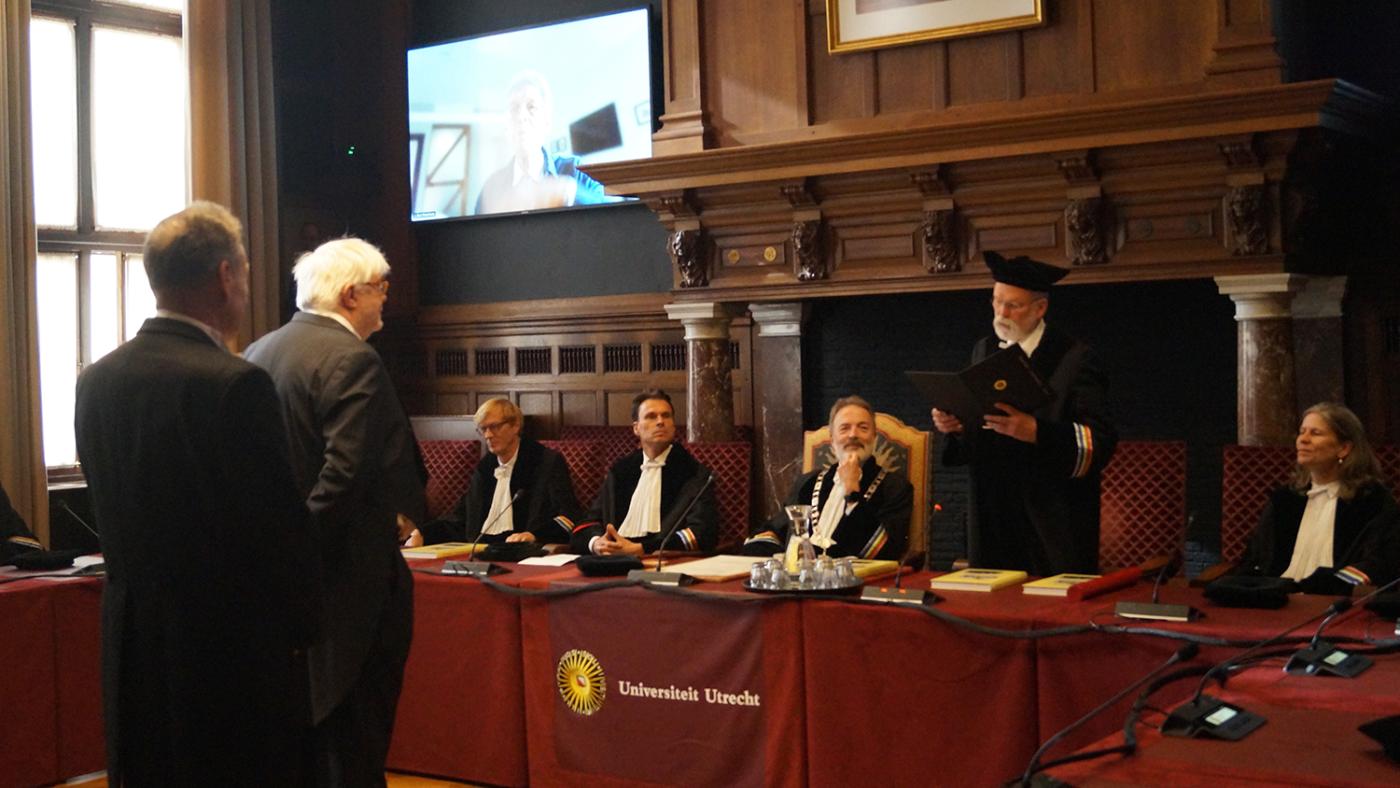
“Has the PhD candidate noticed any discomfort among academic staff about the influence of support staff on university policy? Sometimes I think we academics support them in achieving their ambitions.” This provocative question was posed by Professor Bert Theunissen, who was present at Nugteren's PhD defence, held on Friday, October 11. Nugteren researched the development and organisation of support staff at Utrecht University between 1876 and 2011. Before that, Klaas van Berkel, a professor at Groningen University, pointed out that the thesis focused on the perspective of support staff members, not allowing teaching and research staff to share how they experienced the developments described.
There was a different atmosphere at the Utrecht University's Building's Senate Hall. After all, the thesis was about the university itself and the professors' questions reflected their own experiences. Bas Nugteren has a long career as a policy supporter and as a director for the Sonnenborg Museum and Observatory. His research aimed to demonstrate the importance of support staff.
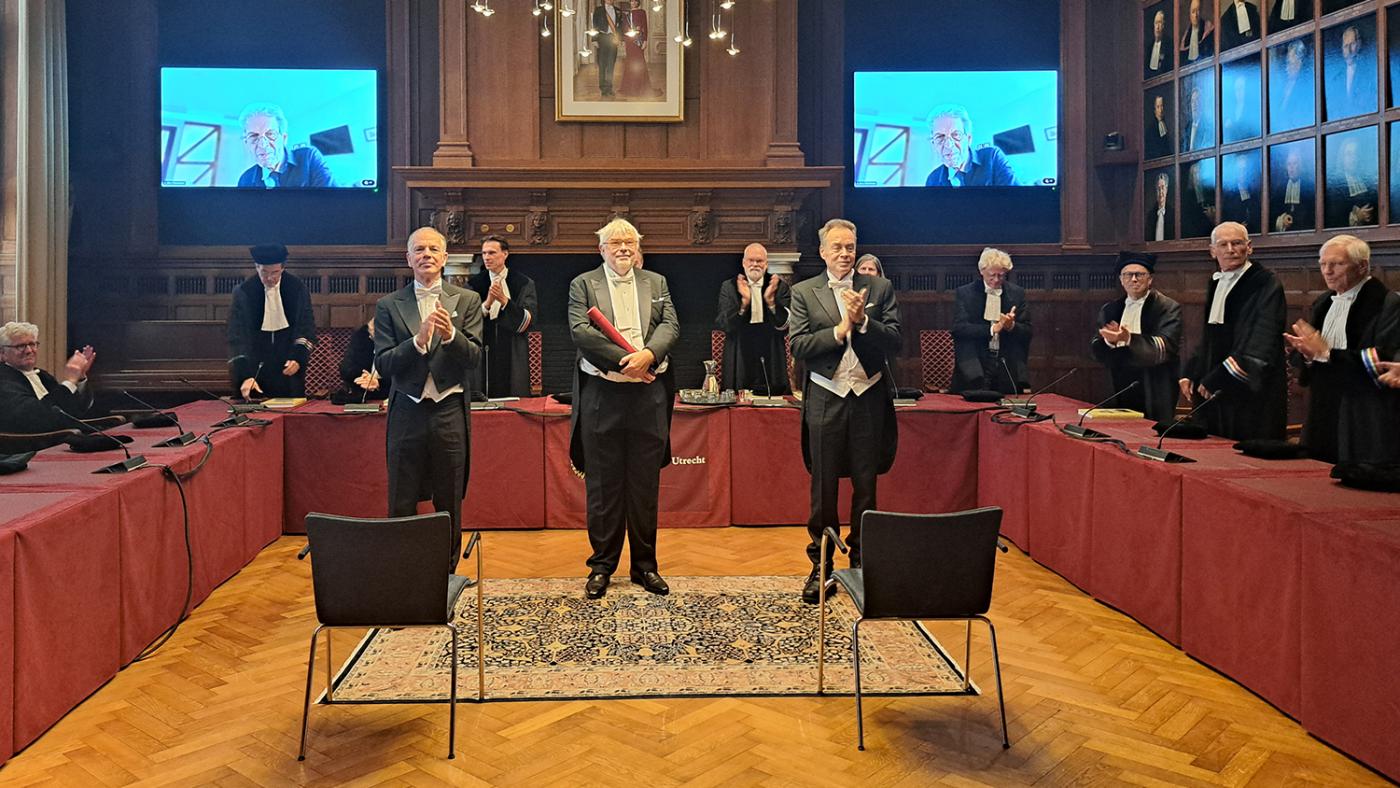
Bas Nugteren's PhD defense. Photo: DUB
Reacting to the questions, Nugteren said that he chose to focus on the perspectives of support staff because there are few studies about this group. Hence his decision to provide an overview. In his view, the support staff is not there to harass scientists with evaluation forms or policy proposals. Their influence has increased over time because society now holds universities accountable. They are now expected to be more and more transparent about how they spend taxpayers' money. Moreover, universities are expected to have a clear plan to compete nationally and internationally. Policy officers are the employees helping executive boards to develop that vision, but, according to Nugteren, they always do this in consultation with the faculties' deans.
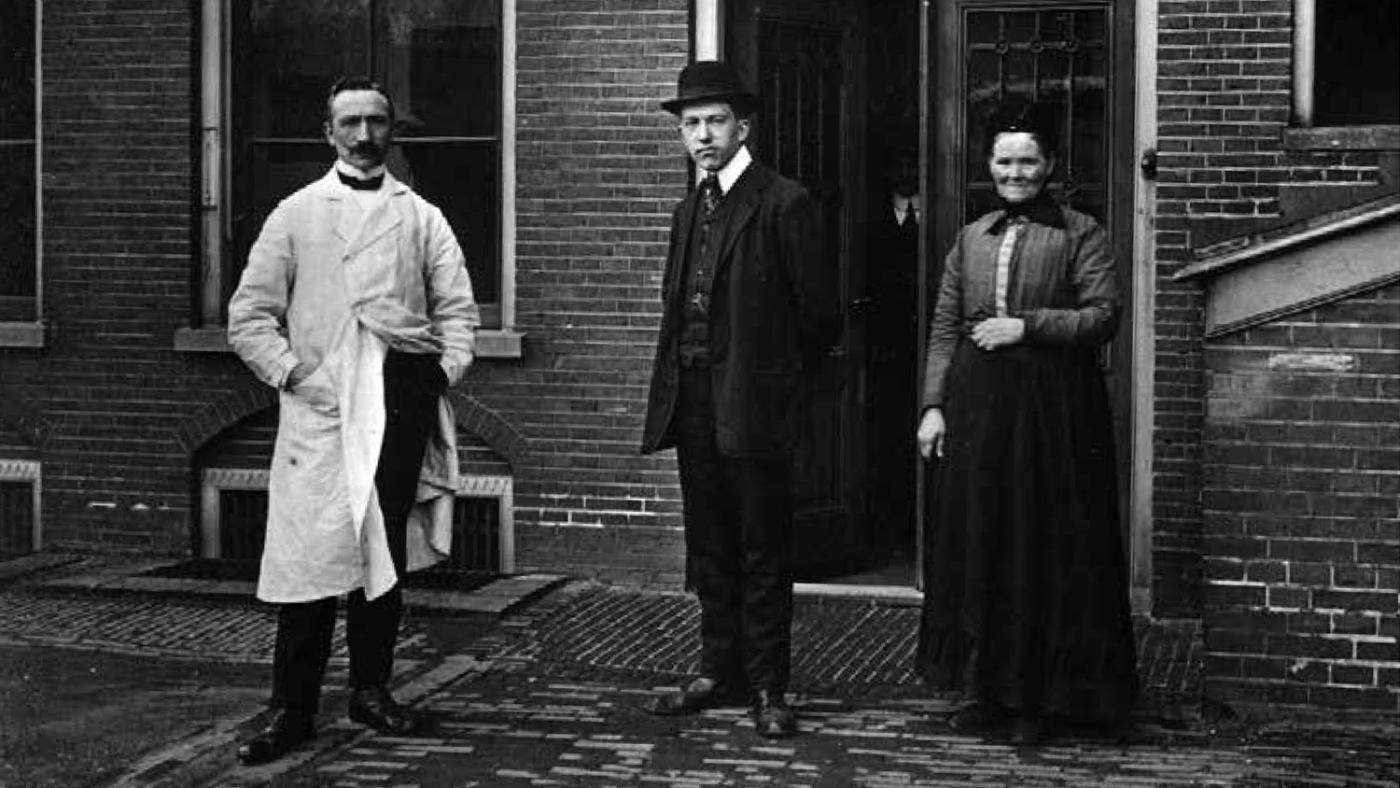
Employees' Botanical Lab. Photo from 1913. From left to right: employee D.P.Löbel, assistant Van Raalte and maid Pietje Dietz (photo service GUA, HUA 86334).
Class society
Up to the Second World War, the support staff consisted mainly of servants, typists, stokers, maids, and a few administrative employees. UU also had a gardener and a beadle. Most of these employees had only completed primary school, so they did not feel like they belonged at the university. “The most they could expect was appreciation," writes Nugteren.
Things changed after the Second World War when the country had to be rebuilt. The number of university students increased, as did calls for democratisation increased. Faculties had no support staff before 1950 as they were places where professors exchanged information about education, research and chairs. All management matters and responsibilities were dealt with by institutes and laboratories, which did have support staff. Most administrative work before the war was done by professors themselves. In 1940, UU's support staff consisted of 600 people. By 1970, as many as 2,500 belonged to the category.
According to Nugteren, the university gradually distanced itself from the idea of civitas academica, which predominated before the war. At the time, the university was seen as a community of professors and students, which Nugteren compares to a class society based on status. Professors had the last word and the support staff members were subordinate to them, at the bottom of the ladder. For example, the elevator at the Physics Laboratory on Bijlhouwerstraat could only be used by people with a key – something only professors possessed.
Management revolution
This class culture gradually disappeared and the university became a modern organisation. More and more tasks were transferred to the faculty and the number of employees at the University Corporate Offices grew as well. The University Governance Act of 1972 influenced these events greatly as it gave faculties a more prominent role and the participation of the university community in decision-making was regulated, with the introduction of the University Council and the faculty councils, where support staff also had a say.
The number of professionals also increased. The Netherlands became a welfare state, which was reflected in the university: service facilities were introduced for both students and staff, and positions like student deans and personnel officers were created.
Nugteren mentions the appointment of Wally van Lanschot, affectionately called "Aunt Wally" by students at the time, as an emblematic example of the change undergone by support staff. Van Lanschot had a university diploma and presided over the UVSV sorority. She had a huge network in The Hague and led the development of student facilities at UU. She was one of the main people behind student welfare at the university.
In addition, the university allowed its employees to follow courses at the university, which contributed to them staying at UU for longer and climbing the organisational ladder.
UU continued to grow after the 1970s and Nugteren talks of a management revolution. All over Europe, people started to think differently about how universities should operate. Politicians demanded universities' business operations become more efficient and effective. As a Unesco advisor put it, "So far, universities have been only managed, not governed."
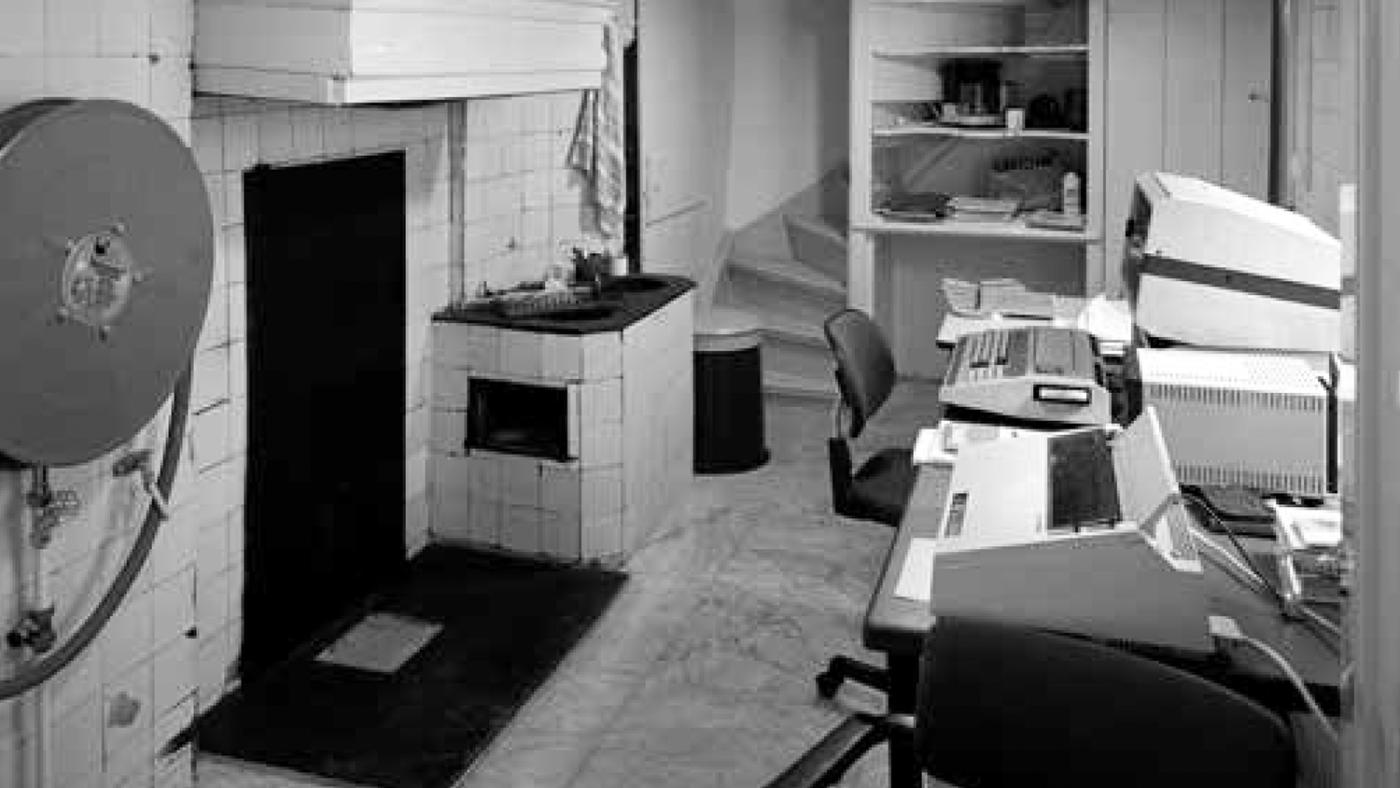
A workplace in the city centre in 1985 (Trans 6) equipped with a word processing machine (probably a Hewlett Packard 150). A dot-matrix printer can be seen in the foreground (GAU photo service, HUA 71436).
As a result, UU's traditional way of working, with separate institutes and laboratories, was no longer working. That's why the university established more central services, such as audiovisual resources (OMI) and computer facilities (Accu). The number of policymakers also grew: each faculty and service had its own team of policymakers. The average education level of UU's support staff rose sharply, with many employees having a higher education degree.
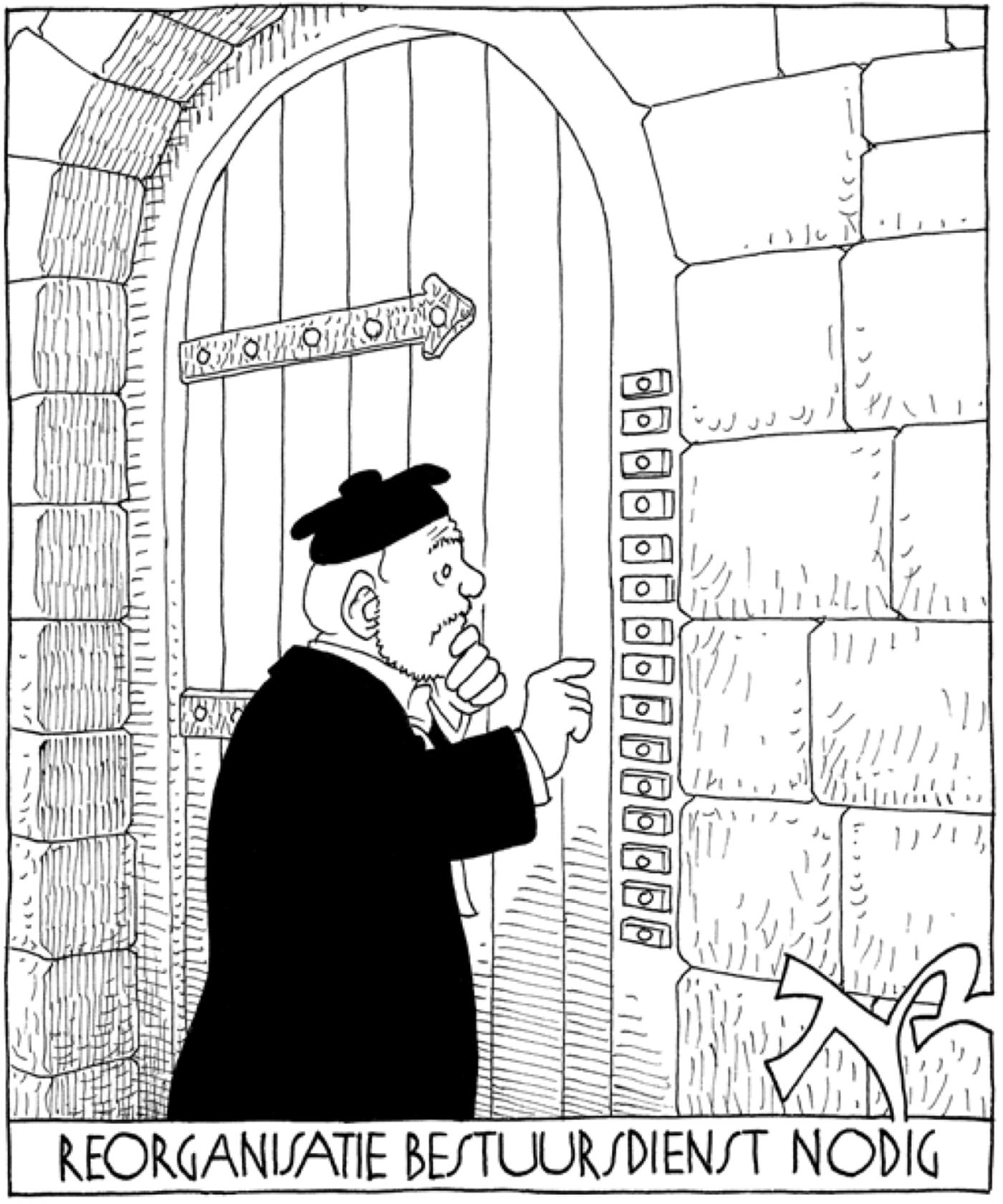
"The organisation remains too complicated". A comic strip by the cartoonist Niels Bongers published by DUB's predecessor in print, UBlad, on January 15, 2009.
Austerity measures
The position of support staff has been discussed more and more since then. Should certain tasks be centralised or decentralised? Should cleaning and security be part of the university's core tasks or should they be outsourced?
In his research, Nugteren describes how governmental budget cuts happened in rapid succession in the 1980s and 1990s. National cutbacks such as the Task Distribution and Concentration (TVC) and Selective Growth and Shrinkage (SKG) acts affected academic staff as well, but the impact on support staff was greater. Many people were made redundant or forced to perform other tasks.
The configuration of UU's support staff was also deeply impacted by technological developments. In the 1970s and 1980s, the university had around twenty telephone exchanges, but from 1992 onwards, everyone had their own phones. Personal computers were introduced in the 1990s and the Internet followed at the end of the same decade. Notes written on paper gave way to e-mails, which led to a different way of working. Today, most communication is done through mobile phones, Microsoft Teams, and WhatsApp groups. Consequently, digital support has become increasingly important and hardly any physical mail delivery is done anymore.
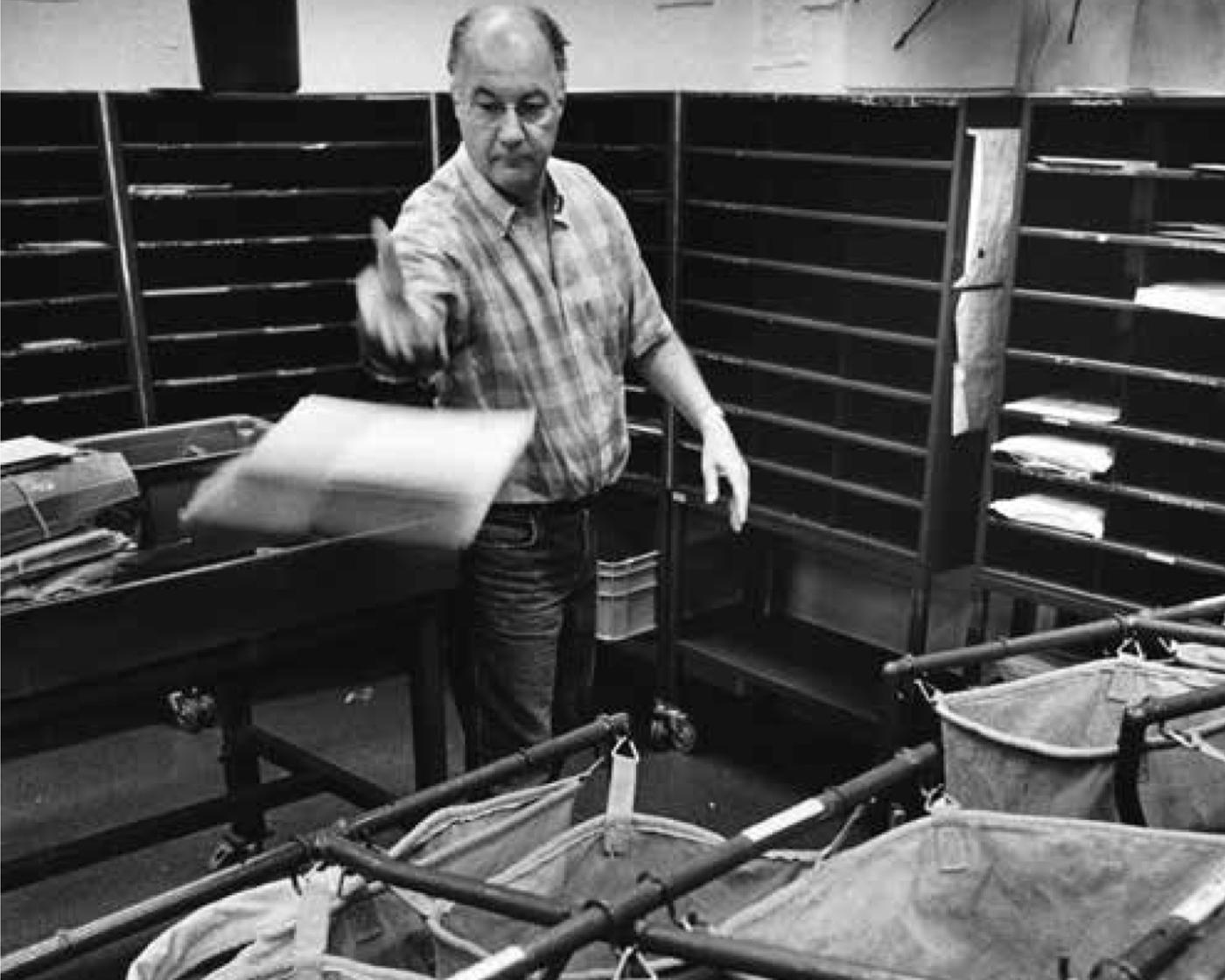
In the early 1980s, the university's mail room processed some 800,000 letters and packages each year, both internally and externally. ICT made the function largely redundant. Photo: Maarten Hartman, UBlad's archive.
Then, politics followed a neoliberal trend, with more and more tasks being outsourced. Nugteren quotes Yvonne van Rooy, chair of the Executive Board between 2004 and 2012, who said that the university is not a company when it comes to education and research, but it should act like one when it comes to supporting services.
UU hired its own cleaning, catering and security staff for a long time, but now these workers were employed by other companies even though they were working at the university every day. In 1999, 120 employees of the Academic Computer Center Utrecht (Accu) were told that they would henceforth be employed by Cap Gemini, which had taken on a significant part of the digitisation tasks. Catering, security and cleaning went through similar situations.
Nugteren considers this problematic. These workers are formally not part of the university's support staff, even though things might feel different in practice. “We are hired by the university as an external security company. I wear clothing with ASI Security's logo, but I feel part of UU. The employees from the Corporate Offices are my colleagues," says Sandra, who works at the Faculty of Law, one of the people interviewed by Nugteren.
UU's students and staff also consider these workers as part of the staff. In 1978, for example, students protested to keep cleaner Ada Claasen, who risked being fired. Another example: in 2000, Ploon Versteeg, who had worked for many years in the coffee room of the Faculty of Humanities, left the university. Colleagues said that she was "the linchpin of the faculty. You can tell her your story. The smell of coffee makes you feel at home."
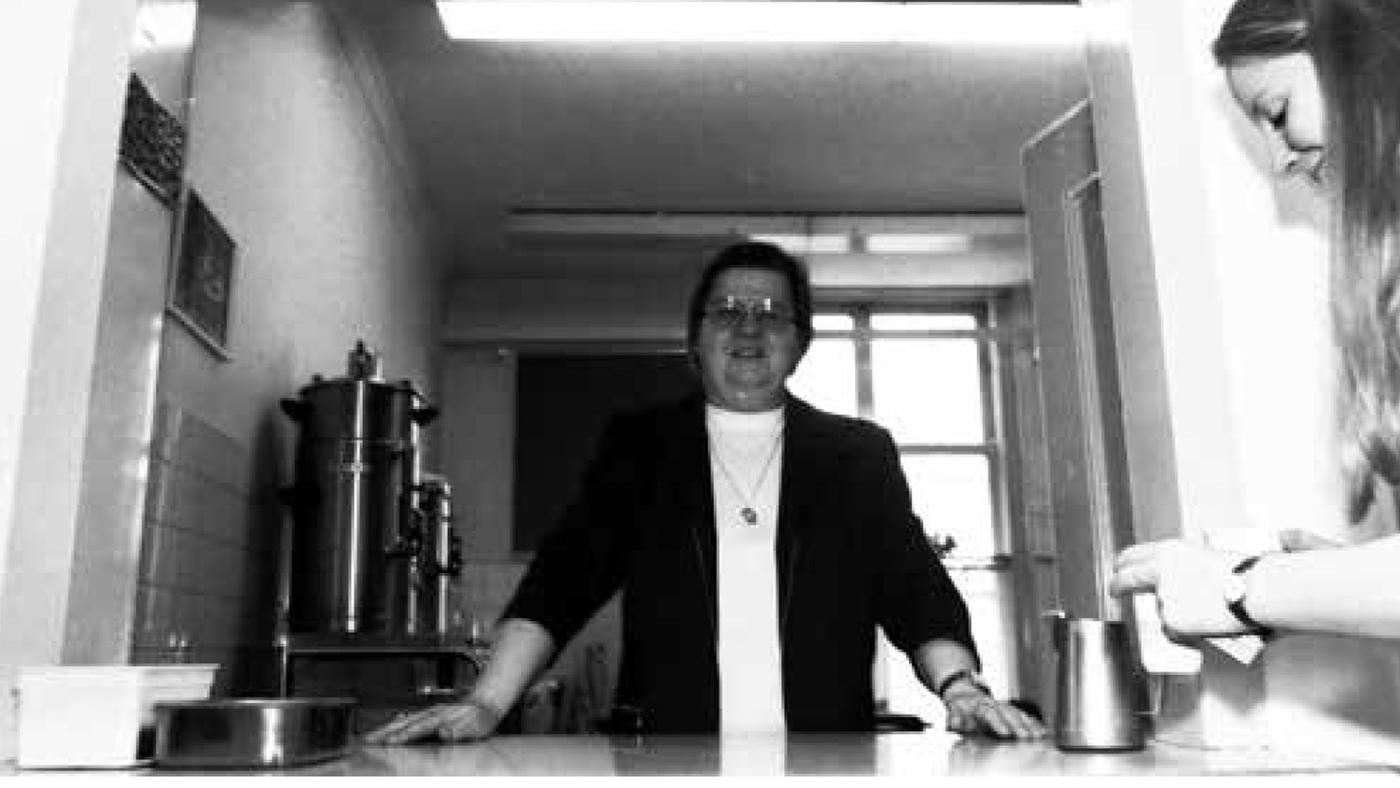
Ploon Versteeg in the coffee corner. Photo: Evelyne Jacq, Ublad's archive
Network organisation
Nugteren stopped his research in 2011, the year when the university changed the name of its campus from De Uithof to Utrecht Science Park. In his view, the name change is symbolic of a phase of intensive collaboration with other knowledge institutions, the business community, and social organisations. Utrecht University is now a large-scale and business-oriented knowledge organisation and partly a network organisation.
At the time, Bureau Berenschot also conducted a study into the role of support staff within the university. Formally, about half of the staff was appointed as either lecturers or researchers, but Berenschot came up with an additional distinction, showing that a considerable part of the support staff performed educational or research tasks, such as analysts or study advisors. Following this reasoning, only about 20 to 30 percent of UU's employees can be considered overhead. These are the employees tasked with administrative tasks which are not directly related to education and research.
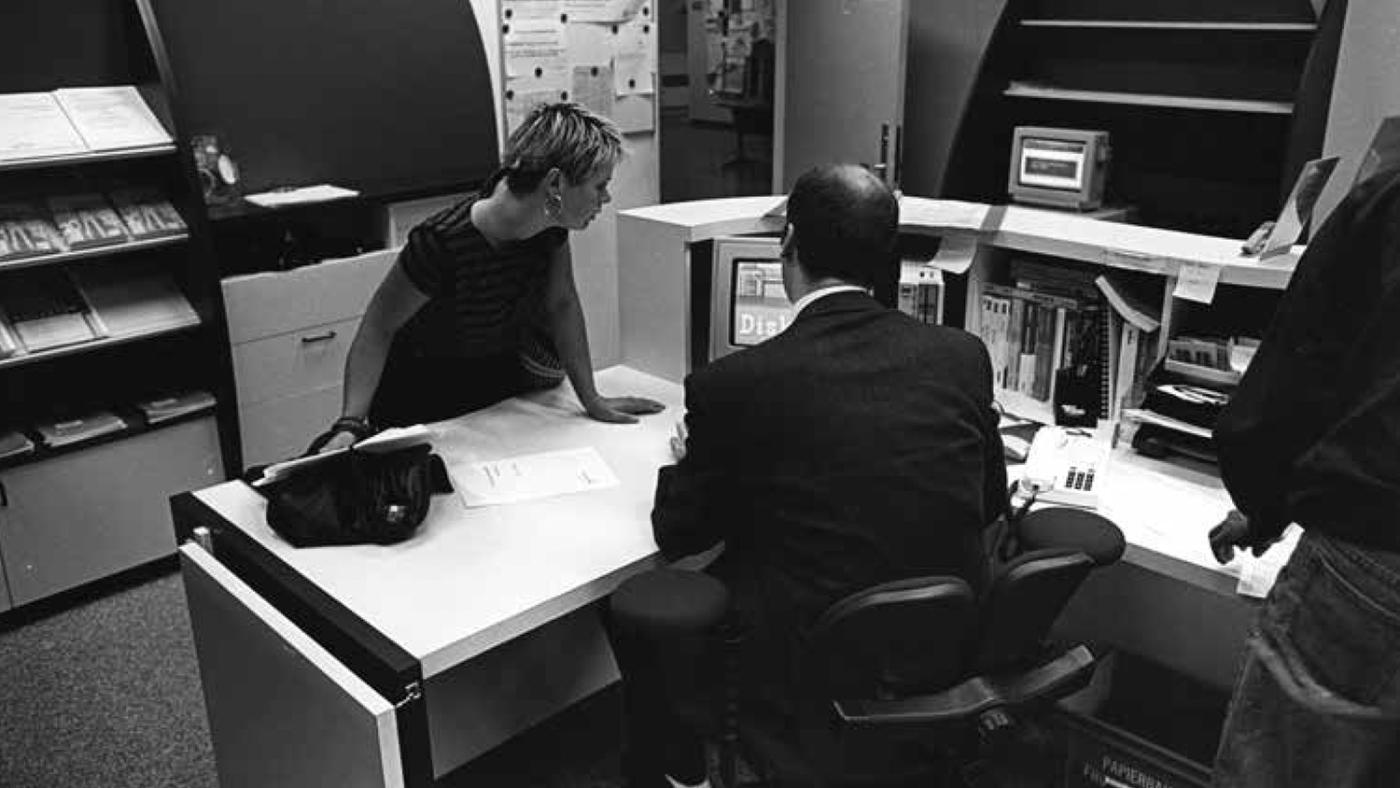
One-on-one service (mid 1990s). Photo by Maarten Hartman, UBlad's archive.
University staff
In his PhD defence, Nugteren was asked how he evaluates the university's decision to drop the distinction between academic and support staff and refer to them all simply as university staff. He considers it a logical consequence of history. After all, the role of support staff has become increasingly important in realising education and research at the university. These employees make an essential contribution to the university's operations.
A few scientists in the thesis defence committee were not entirely convinced. They believe that academic staff should be more involved with policymaking and that the Executive Board shouldn't consist solely of managers. History Professor Maarten Prak put it this way: "Rectors are being recruited through ads in national newspapers. Should the rector be an external manager? Don't we have enough scientists in-house who are sufficiently qualified for the role? Wouldn't they provide a counterbalance to professional managers?"